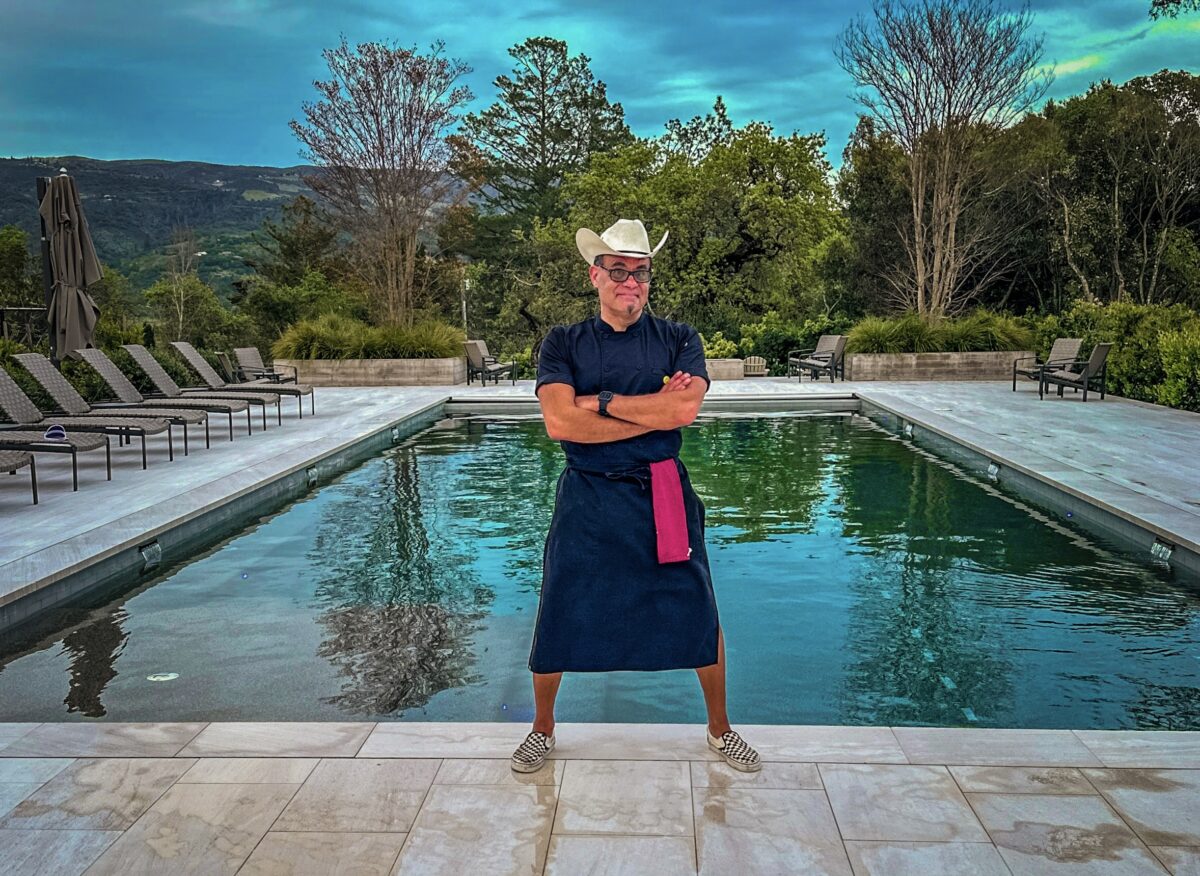David Mau on Life as a Private Chef
With more than four decades in hospitality, from flipping burgers as a teenager to working the line in traditional restaurants, Chef David has taken a unique path into the world of private cheffing. For the past seven years, he’s carved out a career that blends culinary skill with a personal touch, bringing world-class dining experiences directly into people’s homes, rentals, and wine country getaways. Here, he shares what sets private cheffing apart, the joys and challenges of the work, and the lessons he’s learned along the way. Read the full interview below and don’t forget to follow him on Instagram.
What drew you to the world of private cheffing, and how did that journey differ from the more traditional restaurant route?
It’s been quite a journey. When I started doing this seven years ago, the private chef market was much less common—there was no handbook, no community, just me figuring it out as I went along. Coming from forty-plus years in hospitality, including restaurants and plenty of time behind the bar, I had the cooking chops, but this path required new skills: adaptability, people skills, and a certain grace in unfamiliar settings.
The best part? The lifestyle. You can make a good living and, if you do it right, see some amazing places while doing what you love.
Give us a peek behind the scenes: what does a “day in the life” of a private chef look like for you?
I’ve never lost my restaurant hours—my most productive time is after midnight, when I handle admin, scheduling, and planning. Calendar management is a hidden but essential part of this work, especially when juggling multiple platforms and travel commitments.
On cooking days, I’m typically onsite around 5pm for a 7pm service. Most of the time I work solo, so I’m not just cooking but also setting up, serving, cleaning, and packing out. By the time I’m home, it’s close to midnight—and then another hour to put gear away. It’s a grind, but a rewarding one.

What unique challenges do you face working privately, and how have you learned to navigate them?
Private cheffing is a totally different game. Agencies always say, “It’s not if you can cook, it’s whether you can host.” Cooking is a given—the challenge is walking into an unfamiliar kitchen with people you’ve never met and making it all feel effortless.
You learn to expect broken appliances, mystery cookware, or missing tools. That’s why I keep a kit of essentials in my car—including a couple boxes of Kraft Mac & Cheese. More than once, a host has said, “Chef, my kids really just want mac and cheese.” Being prepared for anything is part of the job.
What do you love most about the intimacy and direct collaboration that comes with cooking for private clients?
For me, it’s the personal connection. Sonoma County is my home base, and it’s a privilege to be part of someone’s big trip to wine country. Simple things we take for granted—like fresh tortillas or a salsa roja—can blow guests away, especially if they’re visiting from outside California.
Taking care of people, making them feel special, and sharing food that connects cultures is the best part of the work.

Do you have a favorite or particularly memorable private dining experience that captures what you love about this work?
One that stands out was cooking for a famous Egyptian scientist on his 80th birthday. His family asked me to prepare Tunisian and Egyptian dishes—none of which I’d made before. I nailed them all, and seeing his joy was unforgettable.
After service, I sat with him and we talked about family, food, and life. His son later pulled me aside to pay, and honestly, I didn’t want to take the money. The experience itself was worth more than any paycheck. That’s the kind of joy this job can bring.
For aspiring chefs out there, what wisdom would you share with someone hoping to step into the world of private cheffing?
Be genuinely nice, all the time. Not fake nice—real nice. This job should be a pleasure, and people respond when you bring the right energy. Compared to 12-hour line shifts, this can feel like a breeze if you approach it with the right mindset.
On the practical side: keep headlamps in your gear, AirTag your tools, and always take care of your vehicle. Preparation is everything. But above all—be smart, be prepared, and be nice. Those are the big three.



